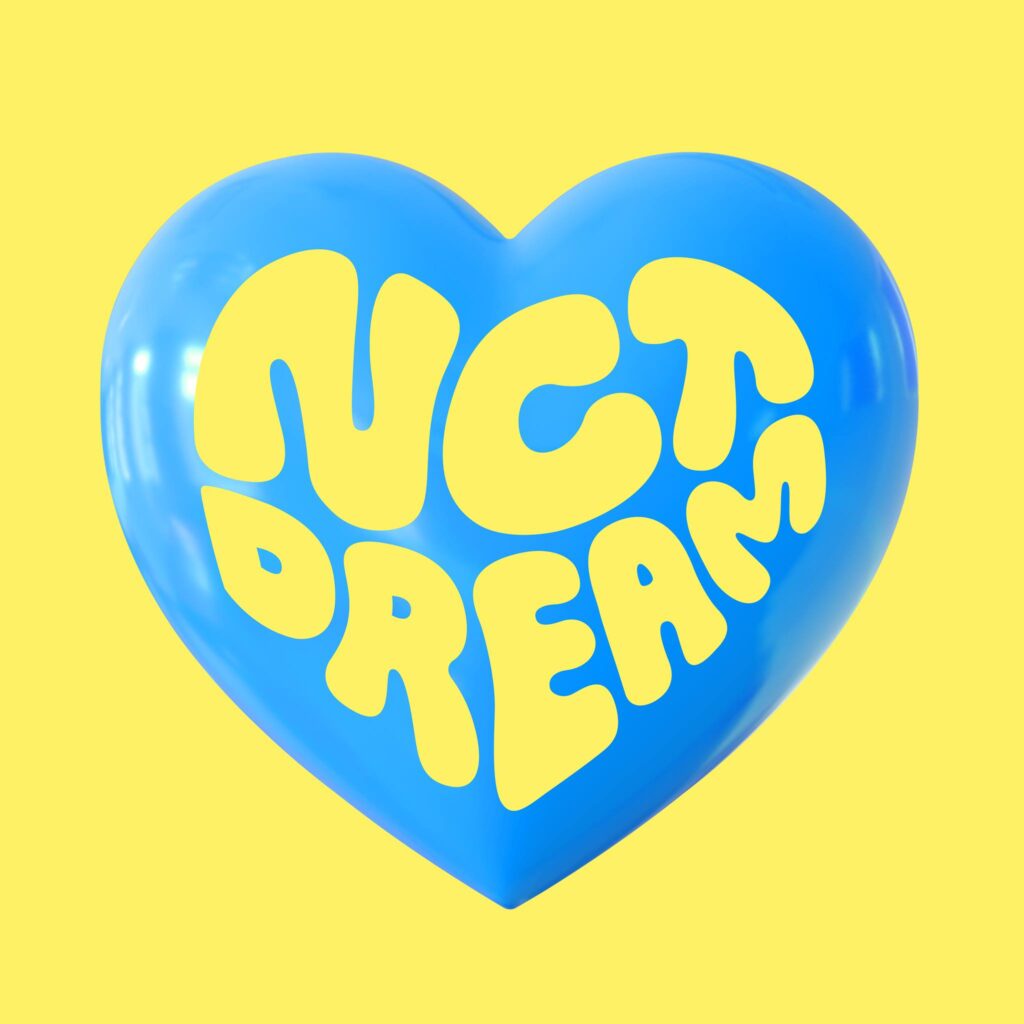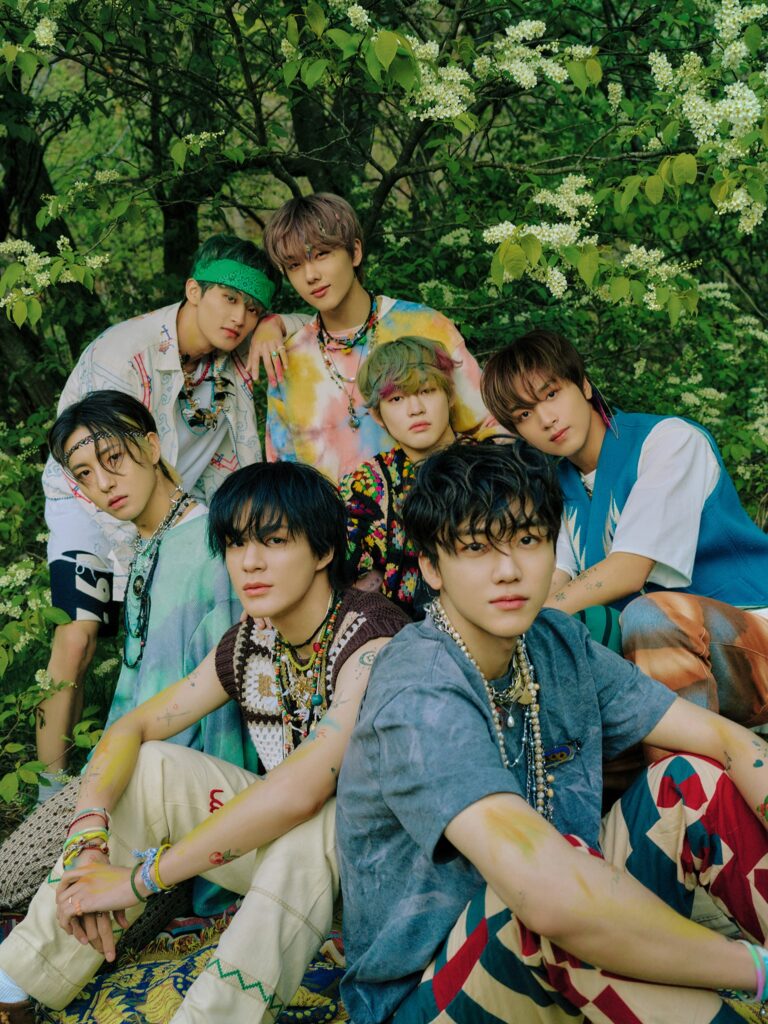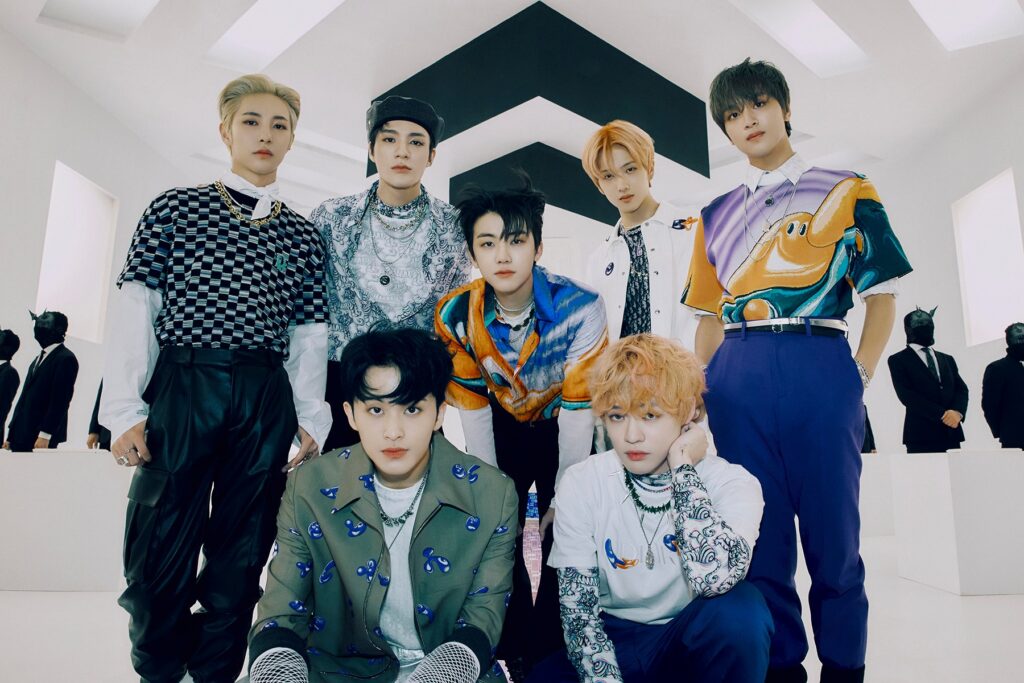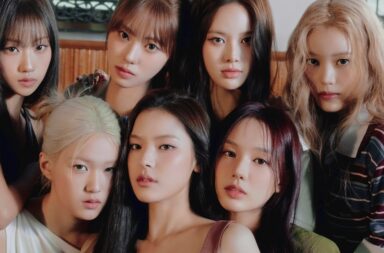
If you haven’t been persuaded yet to take a listen to NCT Dream’s recent album, Hot Sauce, then a quick look at its sales figures should convince you otherwise. The album recorded over 1.7 million pre-orders, smashing their previous record by over a million, before swiftly breaking two million after release – it’s thus one of the best-selling K-pop albums of the year so far. To boost that number even further, NCT Dream returned last week with a repackage, Hello Future, which adds three new songs, including a title track of the same name.
As the group’s long-awaited first full-length album since their 2016 debut (and their first album as legal adults / with ex-graduate Mark), Hot Sauce gathered fervent anticipation from fans, and by and large, that expectation was met. Headed by the fun and spicy “Hot Sauce”, the album is an enjoyable and sincere ode to youth, with numerous uplifting melodies laid over effervescent pop instrumentals.
Hello Future extends this narrative by expressing an additional hope and resolve towards constructing a brighter future – appropriate for a group who are on the steepest upward trajectory they have ever seen, and who are likely to have another five to ten years of growth and success ahead of them. With the stronger sense of purpose that Hello Future gives, this album is likely to reward your decision to give the seven-membered boy group a chance (to hop aboard the “dream rocket”, as they quip on “Rocket”) before they ascend even further.
Title track “Hello Future” contributes most to focusing the repackage’s direction. With the sleekest production of the album’s new songs, it continues the sense of scale and grandeur first introduced last year on “Déjà Vu”, which itself was an evolution of their original, more playful sound (“Diggity” is another example). It paints feelings of inspiration, hope, and determination with soaring melodies and euphoric chords, underlaid with NCT-style powerful percussion; these are mirrored on exuberant lyrics about being “on the way up”:
Can you believe it’s only the beginning?
I think I finally know what love is
Ready or not we’re going, trust me
Soldiers knocking doors down, yelling out
Forget about the war-like times, my heart shouts
Run and fly if you’re rocking with me
Its credits boast some of SM’s top songwriting talent – Kenzie, Adrian McKinnon, and producing duo Moonshine. For reference, these are golden names that normally appear once or twice on a project at most, if at all – on Hello Future, however, Kenzie is credited three times and Moonshine five. It’s a level of investment that is both impressive and unsurprising, considering that NCT Dream have now proved themselves to be one of SM’s most profitable junior groups.
With a few notable exceptions, the rest of the album adheres to the precedent of buoyant melodies on sparkling production set by “Hello Future”, creating a set of songs that are extremely consistent – to the point of weaker ones occasionally blending. It stays light and positive throughout; even its ballads, “Be There For You” and “Rainbow”, carry an uplifting mood.
Of these songs, “Dive Into You” is the strongest, with the catchiest chorus on the record and a pleasantly clean, guitar-and-vocal-led arrangement. In this way, it recalls “Don’t Need Your Love”, one of NCT Dream’s best pop songs to date, which balances sweet vocal melodies with refreshing instrumentation. Its lyrics liken a love interest to an ocean they want to fall deeper into; Mark’s opening adlib and verse are the song’s vocal highlights:
Look around
Even when I look around it’s all dark blue
In this jet-black night it’s like I’m submerged deep in the water
In this darkness only your voice is clear
What should I do?
The weaker songs remain enjoyable, with the same sweet melodies and polished production, but become a little forgettable when sandwiched among stronger examples of the same style. “ANL” shares a similar tempo, key, song structure, and overall mood with “Dive Into You”, but doesn’t offer a hook that is nearly as catchy or an instrumental that is as impactful – as a result, its role on the album ends up becoming that of an outshone sibling.

On the flip side, “Countdown (3, 2, 1)” stands out for being the black sheep of the family. The song makes a sudden swerve towards hip-hop on the album’s second half, before “ANL” follows with a U-turn back to pop. The style is in keeping with NCT Dream’s previous hip-hop experiments (see “Go”, “Boom”, and “Ridin’”) and it offers punchy rap verses from Mark and Jeno over a similarly punchy Moonshine beat, but its placement unfortunately makes the song feel isolated and awkward.
Meanwhile, “Be There For You” stumbles for being forgettable in the wider context of Korean ballads. It languishes in the same, uninnovative territory that the wide swath of SM’s weaker ballads have for the last ten years, with rather generic lyrics drawn over predictable piano and vocal arrangements:
At the end of your day, I’ll be there for you
I’ll hold you in my arms and listen to you
For me, you don’t always have to be perfect
It’s alright (It’s alright)
You just need to stay like this
Always, just like now
As such, it unfortunately offers little more than a work opportunity for NCT Dream’s vocalists, Haechan, Renjun, and Chenle, to show off their vocals (which they do well). It’s a marked contrast to NCT’s stronger ballads, such as “From Home” – if “Be There For You” is a ready-meal pulled from SM’s freezer, then “From Home” is warming, homemade meal tailored to NCT’s tastes (a baffling difference considering both are written by the same songwriters).
Ironically, “Rainbow”, which is much less of a traditional ballad, draws more emotion out of both its singers and listeners. Soft, reverbed guitars set the scene of a sky, which bright vocal melodies fill with light; as the clouds then part with the addition of drums and bass, the swell of group vocals singing a melody in unison paint a rainbow on top. Both musically and lyrically, the song looks back on the past with sentimental nostalgia – an appropriate end for the album in any case, but especially meaningful as the bookend counterpart to “Hello Future”.
It’s also the only song with contributions from the members themselves, with Mark, Jeno, Jaemin, and Jisung credited as lyricists. Perhaps this brought out more sincerity from their performances, because “Rainbow” is the most beautiful and affecting song on the project; it ends an otherwise poppy album with a lingering wistfulness:
When I’m drowned in emotions
Stuck between the two clouds in my heart
There is a rainbow that I think of, it resembles your smile
Its seven colors, the way we were back then
We’d always hold each other’s hands and run
Just like we do now
Overall, Hello Future is a memorable repackage that empowers Hot Sauce with a stronger will, extending an already good pop album with yet more catchy hooks and shiny production. Pretty melodies shimmer across the project, making each song fun and easily singable for listeners – highlights include the hook on “My Youth” and the choruses to “Dive Into You”, “Life is Still Going On”, and “Hello Future”. The vocals are also especially enjoyable – despite now being 19 to 21 years old, Haechan, Renjun, and Chenle’s voices still retain the child-like quality that gave early songs like “My First and Last” that fresh and light feeling, like a thin drizzle of honey (rather than, for example, the slather of rich butter that are Exo’s vocals).
If there are slight regrets to be had about NCT Dream’s current musical direction, however, it’s that they have lost some of the more distinctly East Asian pop flavour that gave songs like “My First and Last”, “Dunk Shoot”, and “My Page” that high school drama or anime opening feel – the bittersweet melodies and nostalgic chord progressions that express exactly the kind of bittersweetness about the past and optimism for the future that Hello Future seeks.

While the tonality on this album explores that to an extent, largely its pop references feel strongly Westernised (it particularly resembles songs from artists like Troye Sivan), painting emotional colours that are vibrant but which occasionally lack nuance. Thus, in attempting to develop NCT Dream’s sound to match their physical growth and the trends of the global market, SM have lost a little of what made their music emotionally resonant in the first place. That is a shame – if there was any group that could have expressed nostalgia about youth and optimism about the future with a sincerity so powerful it moved listeners to feel the same, it was this one.
(Naver [1][2], YouTube [1]. Lyrics via Genius. Images via SM Entertainment.)


